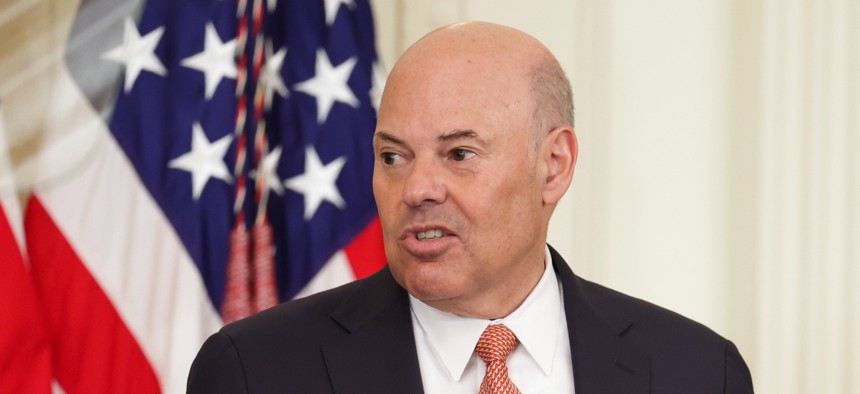
“Initiatives by stakeholders to delay the simplest of our operational changes to integrate our network, improve our service and reduce our cost are relics of our failed strategies of the past,” Postmaster General Louis DeJoy said recently. Kevin Dietsch/Getty Image